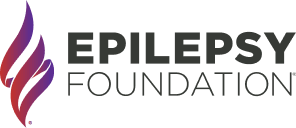Missed Medicines as a Seizure Trigger

Will missing medications provoke seizures?
Yes, it can. Missing doses of seizure medicine is the most common cause of breakthrough seizures. Missed medicines can trigger seizures in people with both well-controlled and poorly controlled epilepsy. Seizures can happen more often than normal, be more intense or develop into long seizures called status epilepticus. Status epilepticus is a medical emergency and can lead to death if the seizures aren’t stopped. Missing doses of medicine can also lead to falls, injuries and other problems from seizures and changes in medicine levels.
Learn More:
Help with Taking MedicationsIs it harmful to miss a single dose of seizure medicine?
It's quite common for people with epilepsy to miss a single dose once in a while. Often nothing bad happens but your chance of having a seizure may be higher. Missing one dose is more likely to cause seizures if you're scheduled to take your medicine only once a day. Then if you miss a dose, you've missed a full day of medication. If you take it two to four times a day, the risk from missing one dose is less. But if you miss several doses in a row, the likelihood of a breakthrough seizure will be higher.
What could happen if I decided to stop taking my seizure medicine?
Stopping seizure medication without your doctor’s advice is dangerous. When some medicines are stopped suddenly, a person can have withdrawal symptoms. You could also have long seizures, clusters of seizures or status epilepticus, even if you’ve never had these problems before. If you're taking more than one seizure medicine, stopping one of the medicines could change the level or amount of another seizure medicine in your body. These sudden changes in drug levels can trigger seizures if the level goes too low, or cause side effects if the level goes too high. So what should you do?
- Don’t stop taking a seizure medicine without talking with your doctor or health care provider first!
- If you are tired of taking a medicine or think it’s not working, don’t stop it.
- DO write down your concerns and talk to your doctor or nurse first.
- If changes in medicines are needed, it’s best to make the changes in a planned and safe way.
What causes people to miss medicines?
Taking medicines every day is hard for anyone to do. Even when you know you need the medicine, people can have trouble taking them regularly. Some common reasons for missing medicines include:
- Forgetting when to take them: The more times a day medicines need to be taken, the more likely people are to forget or miss a dose. Taking meds once or twice a day is usually easiest.
- What to do – use phone alarms, text reminders, a visible schedule of med times, and pillboxes; take meds at times of routine daily activities
- Too hard to take them: Some medicine schedules are complicated. For example, you may need to take pills many times a day or many different pills at each dose. Special instructions like taking medicines before or after food or at different times from other medicines make taking pills even harder.
- What to do – use preprinted schedules and instructions; ask pharmacy to prefill med boxes; use help from visiting nurse, family, caregiver; talk to provider about simpler meds and times
- Problems getting meds from pharmacy: Some people physically can’t get to a pharmacy and mail order may work best. Others have trouble getting meds on time due to insurance restrictions or delays from pharmacies.
- What to do - keep 1 week emergency supply to prevent running out early; use text reminders for when to refill meds; call doctor’s office early for help with insurance coverage or prior authorizations
- Can’t afford medicine, no insurance coverage
- What to do– meet with a social worker, contact state and federal health insurance plans, contact patient assistance programs
- Problems accepting diagnosis of seizures and epilepsy: It’s not easy understanding and accepting that you may have seizures and need to take medicines daily. Some people tend to deny they have epilepsy or get angry. Since seizure medicines are the visible reminder of having epilepsy, you may blame the medicines and not take them.
- What to do – talk to your doctor or nurse about your feelings; ask to meet with a social worker or other counselor for help coping with epilepsy.
Resources
Epilepsy Centers
Epilepsy centers provide you with a team of specialists to help you diagnose your epilepsy and explore treatment options.
Epilepsy Medication
Find in-depth information on anti-seizure medications so you know what to ask your doctor.
Epilepsy and Seizures 24/7 Helpline
Call our Epilepsy and Seizures 24/7 Helpline and talk with an epilepsy information specialist or submit a question online.
Tools & Resources
Get information, tips, and more to help you manage your epilepsy.


